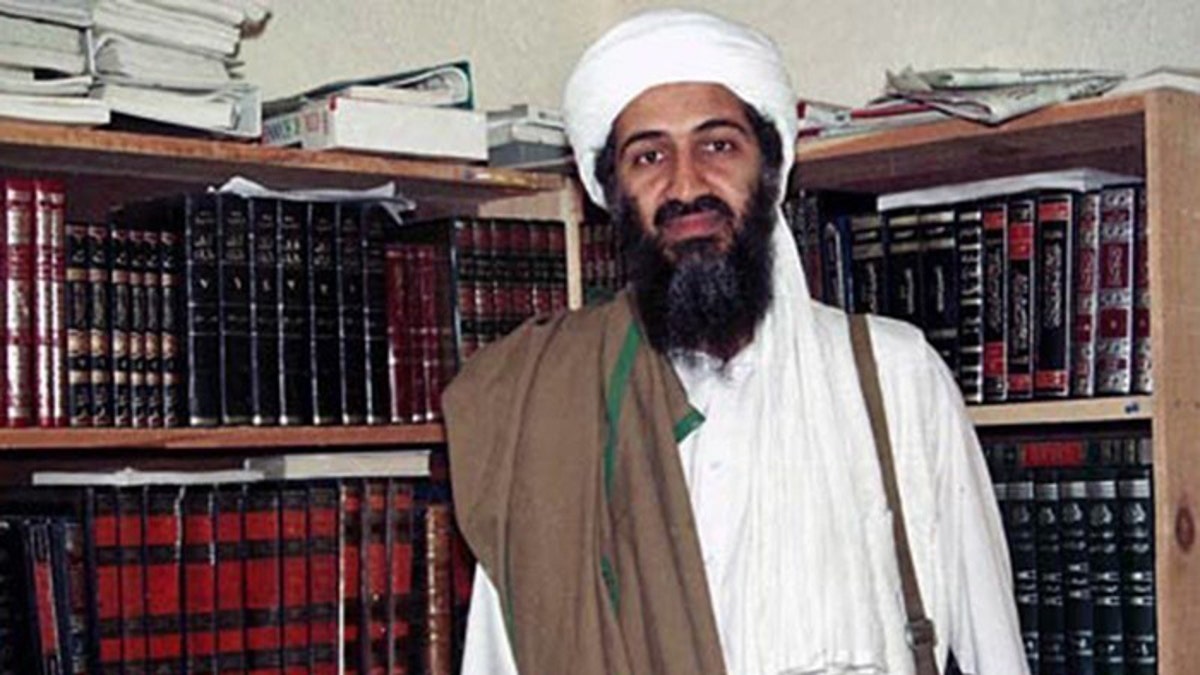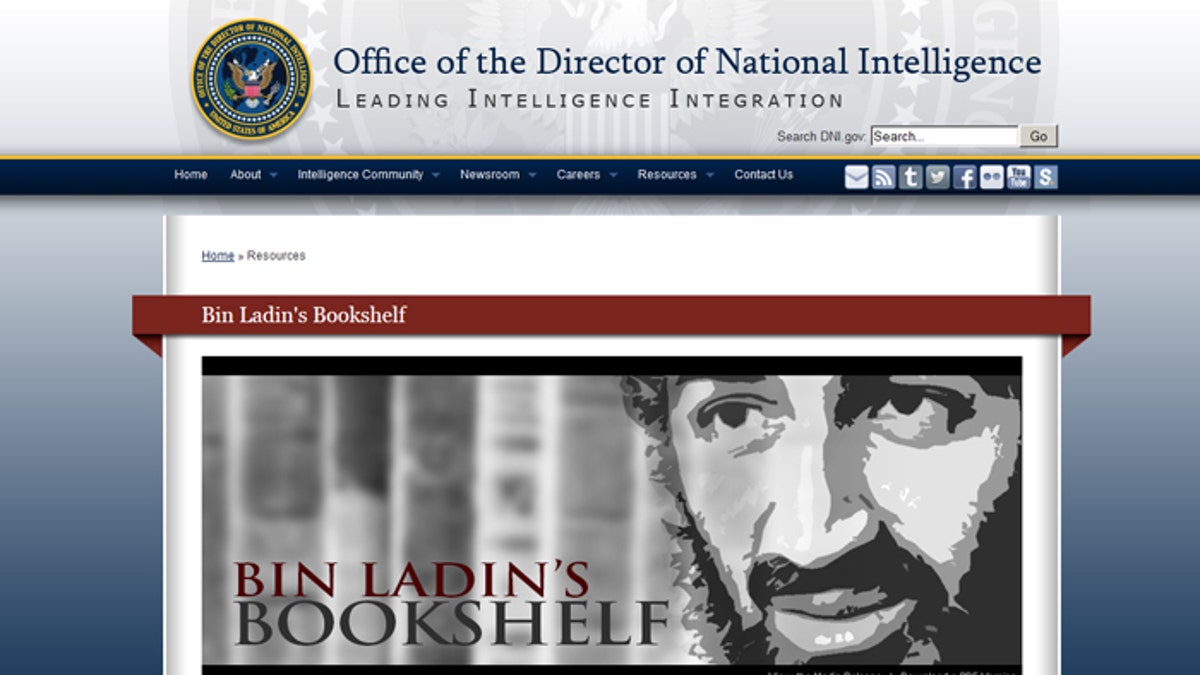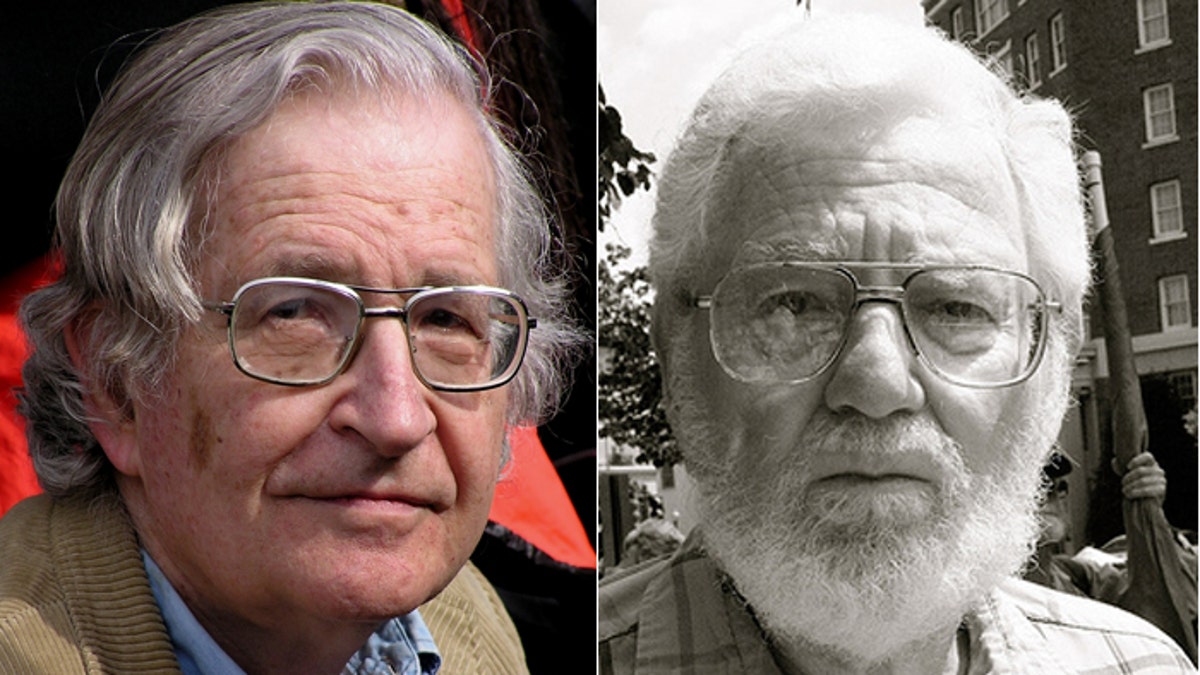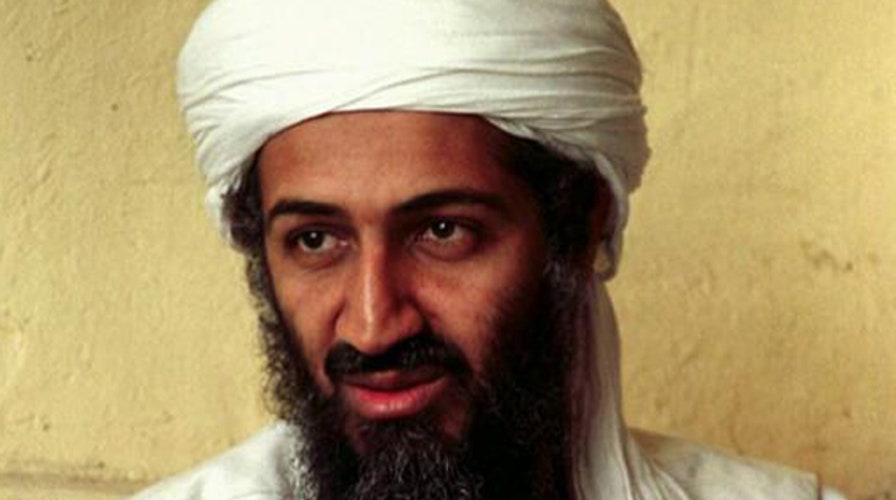US intel releases documents found in 2011 Bin Laden raid
Former Navy SEAL Rob O'Neill reacts to timing
The English-language bookshelf in Usama bin Laden’s personal library featured a collection of anti-U.S. polemics and left-wing conspiracy theories from some celebrated darlings of American academia, according to critics who analyzed the terror mastermind's reading list.
"It's ... not nearly as ideological in its anti-Westernism as you would find in many U.S. college social science courses."
Anti-American conspiracy tomes on everything from the CIA to the Federal Reserve were among the 39 English books seized from the Al Qaeda leader’s compound in Abbottabad, Pakistan, where a team of Navy SEALs took him out in May 2011.
“Bin Laden's bookshelf showed a generous tolerance for bad prose and an undergraduate's faith in bad ideas," said retired U.S. Army Lt. Col. Ralph Peters, a Fox News contributor and author of nine non-fiction works and more than 20 novels. "With his career as a master terrorist in decline, he would have made a popular Ivy League professor: a great opportunity missed."
The Bin Laden books were listed among some 103 documents, including newspaper clippings and Arabic-language works, declassified Wednesday by the U.S. Office of the Director of National Intelligence and released under the title, "Bin Laden's bookshelf."

Noam Chomsky, William Blum and Bob Woodward appeared to be among the terrorist kingpin’s favorite authors to curl up with. Chomsky, the liberal icon and MIT professor known for his disparaging view of the U.S., had two of his works in the Bin Laden collection, "Necessary Illusions: Thought Control in Democratic Societies" and "Hegemony or Survival: America’s Quest for Global Dominance."
It was already known that bin Laden was a big fan of Blum, a onetime State Department employee who became disillusioned during the Vietnam War and became a harsh critic of U.S. foreign policy. Blum’s "Rogue State: A Guide to the World’s Only Superpower" and "Killing Hope: U.S. Military and CIA Interventions since World War II" were recovered from Bin Laden’s compound.
Bin Laden had already endorsed “Killing Hope,” recommending in a 2006 audiotape that all Americans read the book. Blum was “amused” with the endorsement, quipping that it was “almost as good as being an Oprah book." Indeed, the then-six-year-old book shot up to No. 30 on Amazon.com's best seller list by the next day.

“I knew it would help the book's sales and I was not bothered by who it was coming from,” Blum told Reuters at the time. “If he shares with me a deep dislike for certain aspects of U.S. foreign policy, then I'm not going to spurn any endorsement of the book by him.”
Other non-fiction titles included "America’s Strategic Blunders" by Willard Matthias; "The Best Democracy Money Can Buy" by Greg Palast; "Bloodlines of the Illuminati" by Fritz Springmeier; "Imperial Hubris" by Michael Scheuer ; "New Pearl Harbor: Disturbing Questions about the Bush Administration and 9/11" by David Ray Griffin; "Secrets of the Federal Reserve" by Eustace Mullins and "Obama’s Wars" by legendary Washington Post newsman Woodward.
But Bin Laden's books did include legitimate intellectual works and actually might be to the right of some college reading lists, according to Cornell University Law School Professor William Jacobson.

"Based on the bookshelf list, I don't think Usama bin Laden's reading habits could be classified as left-wing," said Jacobson. "It's more diverse than that, and not nearly as ideological in its anti-Westernism as you would find in many U.S. college social science courses."
The documents also included a “modern and extensive” pornography collection, letters from Bin Laden to his four wives, 20 children and fellow terrorists, newspaper clippings about Al Qaeda and President George W. Bush and a “Delta Force Extreme 2” video game guide.
One other interesting title in Bin Laden’s English-language library was "A Brief Guide to Understanding Islam," by I. A. Ibrahim.

